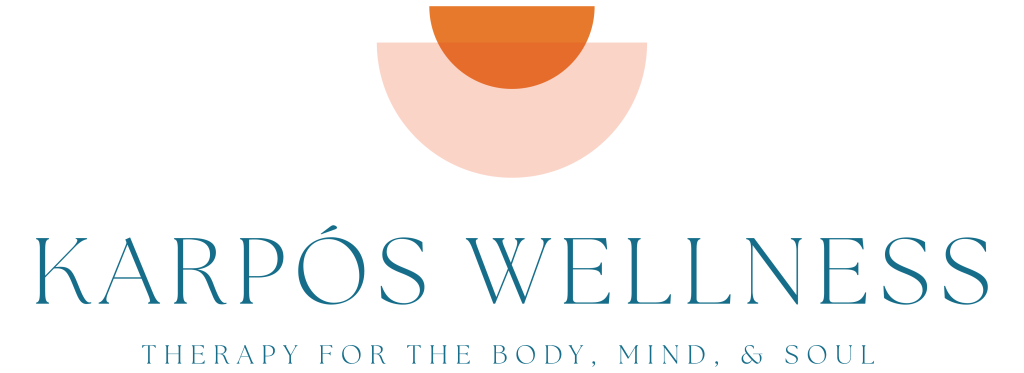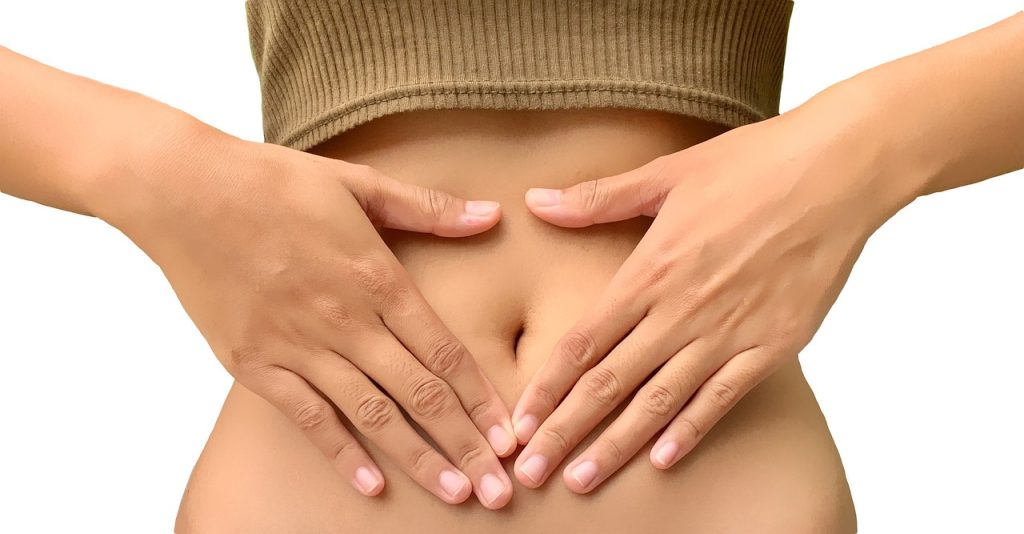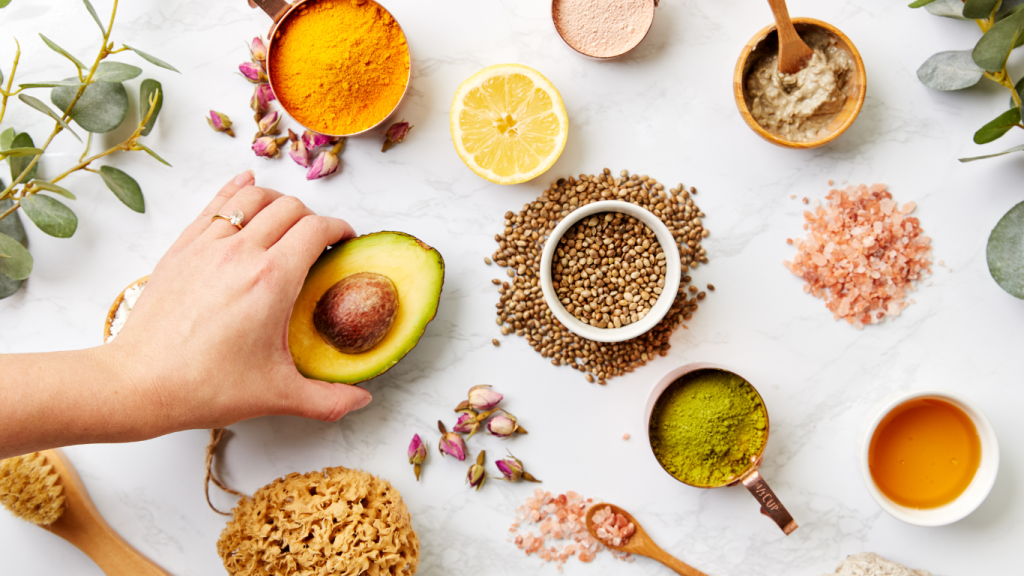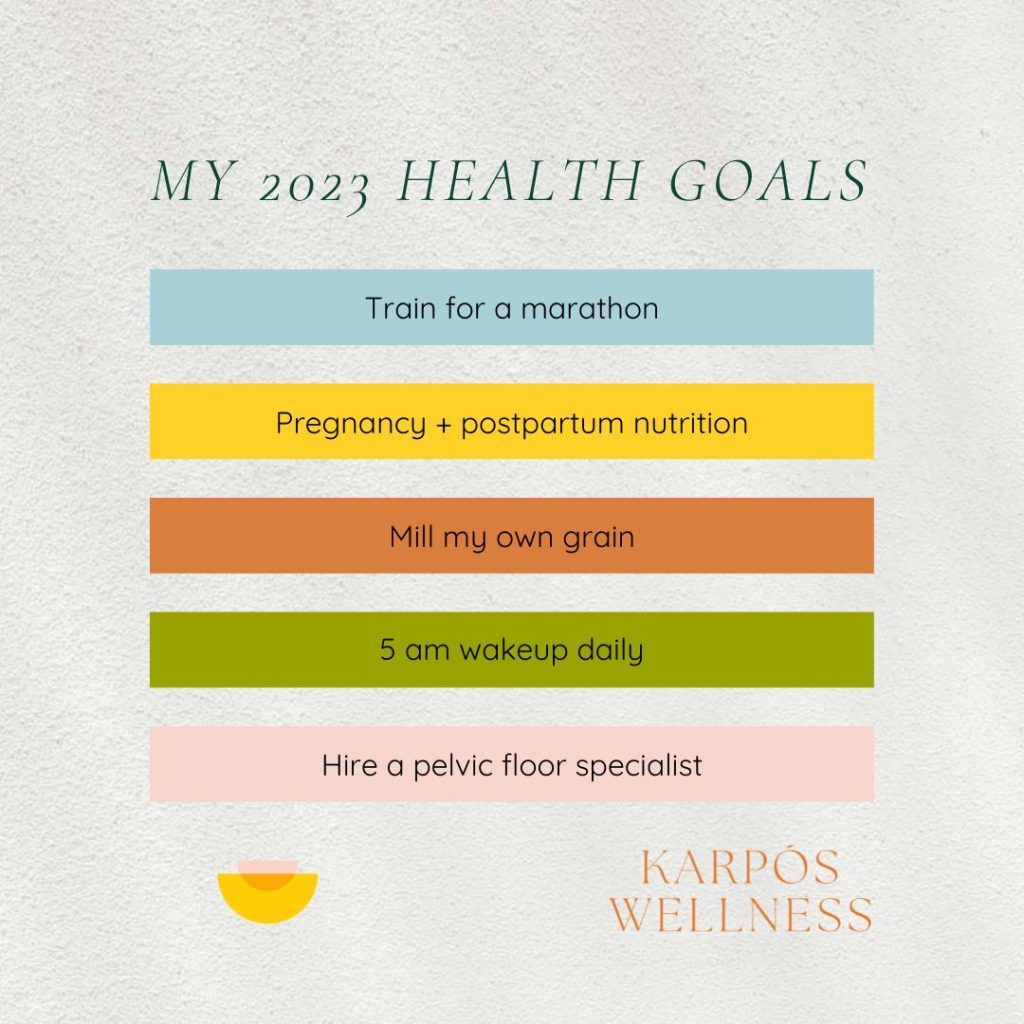The Brain/Gut Connection
Through years of research and clinical application, I personally believe that all (or most) healing also begins, or has a place of healing, in the gut. Including mental health.
It’s been said that the Gut is the second brain of the body. This is because the brain and the gut are directly connected through thousands of tiny neurotransmitters that wrap around the GI tract all the way from the base of the spine to the stomach, and are controlled by your enteric nervous system –The brain and the gut are talking to one another all day long.
Have you ever felt nervous before a meeting, or nauseous before a big event? How about feeling sick to your stomach upon hearing a sad or shocking story or having a “gut feeling?” This is because the brain and the gut are so closely connected that signaling to one is felt and impacting to the other. This includes when the body feels anxious and it determines how optimal the gut can feel after a meal (i.e. no bloat or uncomfortability!)
It’s important that both the brain and the gut are both well tended so that we can show up optimally for the one beautiful life that we’ve been given on this earth.
Our body makes happy hormones that enable us to think clearly, self regulate, be less anxious, and happy. These main two are called serotonin and dopamine. About 90-95% of our serotonin is produced in the gut and more than 50% of the body’s dopamine is as well. This means that we need the gut to be well taken care of so that these happy hormones can be produced in robust amounts to be sent to the brain to experience calm and happiness.
Likewise, when we experience anxiety, digestion is impaired. Digestion is a top priority of the body and it doesn’t digest optimally unless it’s in a state of safety and calm. (i.e. not stressed). Do you experience bloating after meals or GI uncomfortability when you feel stressed? It’s likely that the neurotransmitters are scanning for safety and holding tight to the GI tract until it’s in a state of peace. We must enter into a place of peace in order for our gut to digest, it’s the way we were strategically designed.
What do we do to support seasons of anxiousness and/or GI upset? Let’s take a look:
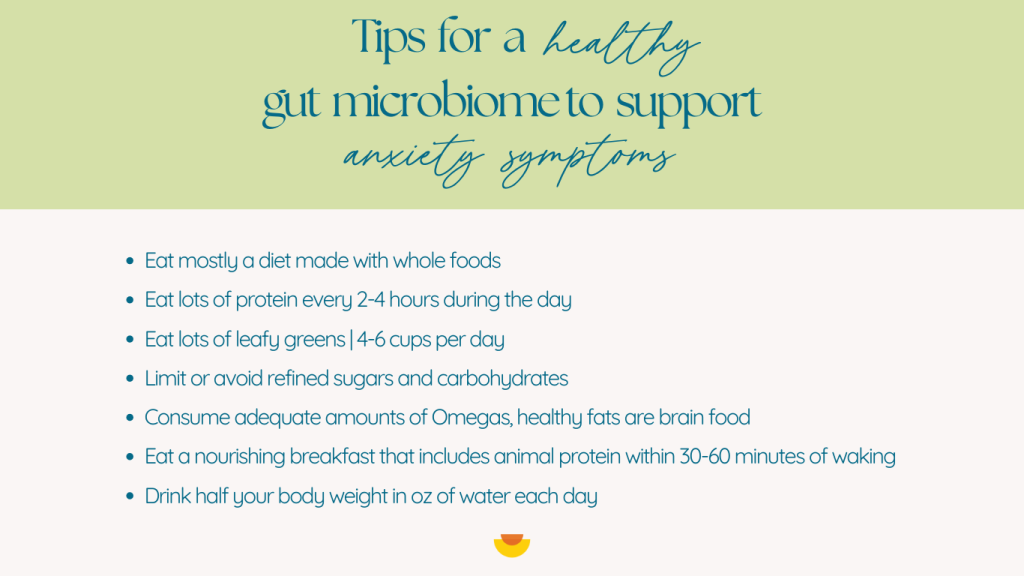
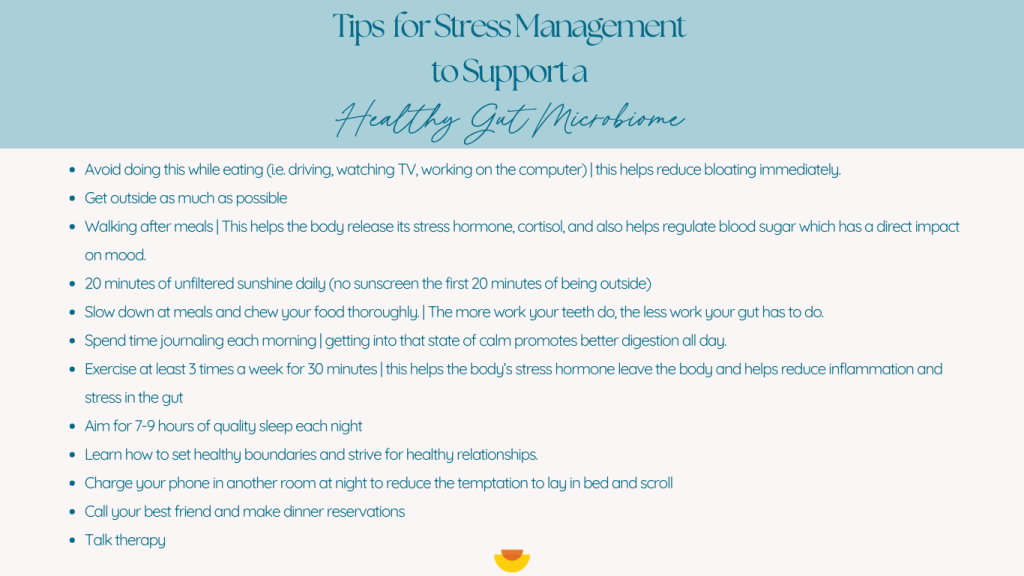
If you decide to try any of these things, we’d love to hear from you and how they are positively impacting your healing journey. Remember to take it one day at a time and remember that you have what it takes. If you are interested in having someone navigate life stressors with you, therapy can be a great tool. Sometimes it helps to know that someone is with you and supportive of you, exactly where you are on your unique path towards healing, mind, body, and soul.
Citations
Gunnars, K. (2019, February 27). Does all disease begin in your gut? the surprising truth. Healthline. https://www.healthline.com/nutrition/does-all-disease-begin-in-the-gut#your-gut
The gut-brain connection. Harvard Health. (2023, July 18). https://www.health.harvard.edu/diseases-and-conditions/the-gut-brain-connection
Myers, Dr. A., & Myers, A. (2021, October 18). Serotonin & the gut: The gut-brain axis. Amy Myers MD. https://www.amymyersmd.com/article/serotonin-gut-health
Eisenhofer, G., Åneman, A., Friberg, P., Hooper, D., Fåndriks, L., Lonroth, H., Hunyady, B., & Mezey, E. (1997, November 1). Substantial production of dopamine in the human gastrointestinal tract. OUP Academic. https://academic.oup.com/jcem/article/82/11/3864/2866142
Ede, R. (2023, March 8). Rest and digest: The parasympathetic nervous system. LiveScience. https://www.livescience.com/parasympathetic-nervous-system-rest-and-digest
Admin. (2023, August 4). The connection between protein and your mental health. Mental Health Connecticut. https://www.mhconn.org/nutrition/protein-and-mental-health/
Lindberg, S. (2020, June 23). Your anxiety loves sugar. eat these 3 things instead. Healthline. https://www.healthline.com/health/mental-health/how-sugar-harms-mental-health
